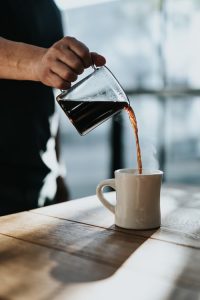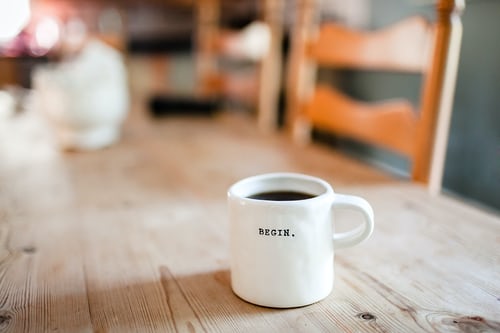
Coffee culture has EXPLODED and become a social norm, with approximately 95 million cups of coffee been drank per day in the UK!
You probably know that caffeine is a drug and gives you a buzz, but how does it actually work?
Your brain naturally produces a chemical called Adenosine throughout the day. Adenosine has the job of slowing down brain activity & making you feel sleepy as the day progresses, preparing you for the end of your day. Caffeine blocks the effects of Adenosine, making you feel more alert, more focused, and less sleepy.
The effects of caffeine can have a half life lasting between 4-6 hours (depending on dosage & the individual) meaning half of it can still be in your system hours after drinking.
This is why/how caffeine can disrupt your sleep, depending when your cut off point is during the day.Even if your cut off point is earlier on the day, the quality of your sleep may still suffer as some studies have shown that caffeine may disrupt deep restful sleep patterns.
This can create a loop: you drink caffeine to avoid fatigue, which disrupts your sleep. You wake up feeling tired, and grab a coffee!Personally, I LOVE coffee, and really enjoy starting every day with a nice Nespresso.

However, I can also be prone to poor sleep, so I avoid any caffeine past mid day. After 12, its de caff all the way. I also haven’t touched a pre workout drink in a long time
Like all things, it’s very much person dependent.
E.g- Amy’s (my gf) mum can have a coffee before bed and sleep just fine, whereas I’d be up all night!
Caffeine can help give you boost and extra focus, but the devil is in the dose, and dose is individualistic(is that even a word? ![]() ).
).
If, like me, you are prone to over thinking or poor sleep, try the lunch time cut off and see if it helps.
Tristan ‘caffeinated’ Buttle.